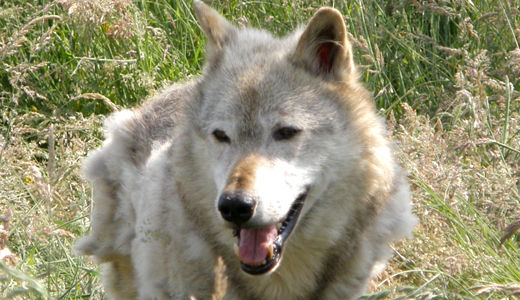
Wolves in the northern Rocky Mountains are no longer protected under the Endangered Species Act, thanks to an agreement between the U.S. Fish and Wildlife Service and Gov. Matt Mead, R-Wyoming.
On August 12, according to Environmental News Network, the Center for Biological Diversity, Western Watersheds Project, and Cascadia Wildlands filed an appeal in the Ninth Circuit Court of Appeals challenging the constitutionality of this latest right-wing move to completely disregard the wellbeing of wildlife.
With wolves in Wyoming now removed from the endangered species list, the state will only be required to keep 100 wolves alive outside Yellowstone and Grand Teton national parks – which themselves only protect several dozen wolves. About 300 wolves are believed to live outside the parks, and can now be killed in an unregulated fashion throughout most of the state, excluding the northwest area – where hunting permits for wolves will be issued. The boundaries will shift there on a seasonal basis to allow the animals to migrate in and out of parks.
Kieran Suckling, executive director of the Center for Biological Diversity, told the News Network, “Allowing the killing of wolves in the state of Wyoming, through transfer of authority from the federal to the state governments, is a brutal and unnecessary concession to the wolves’ merciless enemies in Wyoming’s livestock and hunting-outfitter industries.
“Along with the wolves that were recently delisted via congressional rider in Idaho and Montana, delisting and persecution of wolves in Wyoming bodes poorly for the species’ long-term survival throughout the northern Rocky Mountains.”
Noah Greenwald, endangered species director at the Center, added, “Wolves in the Rocky Mountains should be managed by science, not by Congress. The job of wolf recovery is far from complete.”
Over in Idaho, the state authorized a massive hunting season, with no limit on how many of the estimated 1,000 wolves can be killed.
Notably, reported Mad Mike’s America, this marks the first time in history that Congress, instead of scientists, removed an animal from the Endangered Species List.
Josh Laughlin, campaign director with Cascadia Wildlands, commented, “The wolf rider is a clear example of overreaching by Congress that resulted in the wrongful removal of protections for wolves. The rider is not only a disaster for the wolves, but for any endangered species that a politician doesn’t like. Congress has set a terrible precedent that we hope to overturn.”
The Petition Site, working with Care2, is aiming a retaliatory strike against the Republicans’ anti-animal agenda in the form of a petition. They have chosen to focus on one specific wolf killer: Sarah Palin. During her two years as governor, Palin proposed a $150 bounty for the severed foreleg of each slain wolf.
Alaska is currently the only U.S. state in which hunters can use aircraft to shoot and pursue wolves.
During the summer, personnel from an Alaskan wildlife agency staked out a wolf den – an illegal practice, despite the current GOP anti-wolf sentiment – and gunned down 14 adult wolves from helicopters. They then proceeded to enter the den, where they found 14 frightened and helpless wolf pups, and shot them, one by one, in their heads. In total, 28 wolves were slaughtered.
The Petition Site and Care2 have demanded justice, and ask people to take part in the movement to protect and save wolves by signing a petition to hold Palin accountable for the animal massacre she started.
“Wolves continue to be threatened by human intolerance and persecution,” said Jon Marvel, executive director of Western Watersheds Project. “[These are] the very factors that resulted in their extinction across most of the United States. Until there is more tolerance for wolves, they will continue to need protection.”
Photo: Retron/Wikipedia












Comments